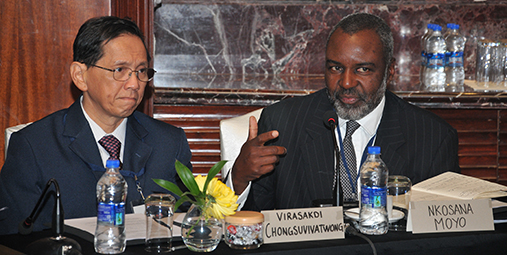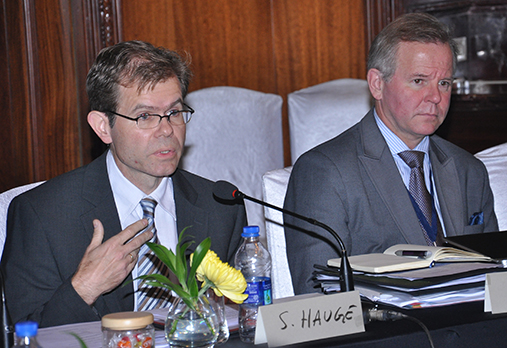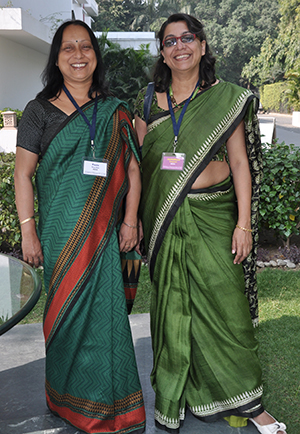The very function of the Commission report was discussed in Delhi. In general terms, its function lies in its ability to frame the problem (why does global governance matter for health), to set the agenda by outlining the major determinants of health requiring global governance responses, and to suggest priorities by providing specific policy proposals.
The Commission has a clear political and global perspective and some of the major determinants of health put forward are:
- Trade agreements that conflict with public health objectives
- Volatility of global commodity markets
- Unregulated activities of global corporations that threaten health
- Inadequate global responses to violent political conflict
- Missing global goods due to lack of investments in technologies that address enduring problems of poverty
- Financial market volatility
- Inadequate distribution of knowledge, expertise and other common public goods
The need for a paradigm shift surfaced at various points during discussions of how to express the intolerance of the current situation in the world, where ill health is somehow an accepted outcome of practices such as armed conflict, polluted environments and traded goods and services. As one of the Commissioners expressed it:
“There is a growing collective sense in this room that leads to confidence in that some things are unacceptable. We should dare to address the difficult and unacceptable truths, and find a language for doing that, (…)”.
The relation between local, national and global governance was addressed at the meeting. The Commissioners stressed that the principle of subsidiary is important in relation to health as it is only when you understand the local and national needs that you can pinpoint needs from a level of global governance. For the Commission, the challenge is to approach global governance from a perspective that asks: what are the major issues concerning health and social suffering that no nation state can solve by itself?
 Nkosana Moyo (to the right) explained how he considered well functioning local and national level governance as a prerequisite for good global governance. (To the left: Virasakdi Chongsuvivatwong).
Nkosana Moyo (to the right) explained how he considered well functioning local and national level governance as a prerequisite for good global governance. (To the left: Virasakdi Chongsuvivatwong).
At the meeting, members of the Youth Commission were present presenting their reflections on Commissioners’ discussions towards the end of the meeting. The Youth Commission acts as a “mirror” as well as a “pebble in the shoe” for the Lancet-UiO Commission. The challenges they put forth to the Commission was a need for greater conceptual clarity and an encouragement to engage with the world and dear to call for a new future.
In February 2013, members of The Lancet UiO Commission and the research group will gather at the Rockefeller Foundation Centre in Bellagio where they will advance the writing of the final report. The very last Commission meeting is planned for Oslo in April 2013.
 The Minister Counsellor, Sigvald Hauge (to the left), from the Norwegian Embassy in New Delhi addressed the Commission during the opening of the meeting (to the right: Chair, Ole Petter Ottersen).
The Minister Counsellor, Sigvald Hauge (to the left), from the Norwegian Embassy in New Delhi addressed the Commission during the opening of the meeting (to the right: Chair, Ole Petter Ottersen).
 The Commission meeting was hosted by the Vice-Chair, Ms Jashodhara Dasgupta (to the right), and her colleague at SAHAYOG, Mrs Palsari Roy Das.
The Commission meeting was hosted by the Vice-Chair, Ms Jashodhara Dasgupta (to the right), and her colleague at SAHAYOG, Mrs Palsari Roy Das.
